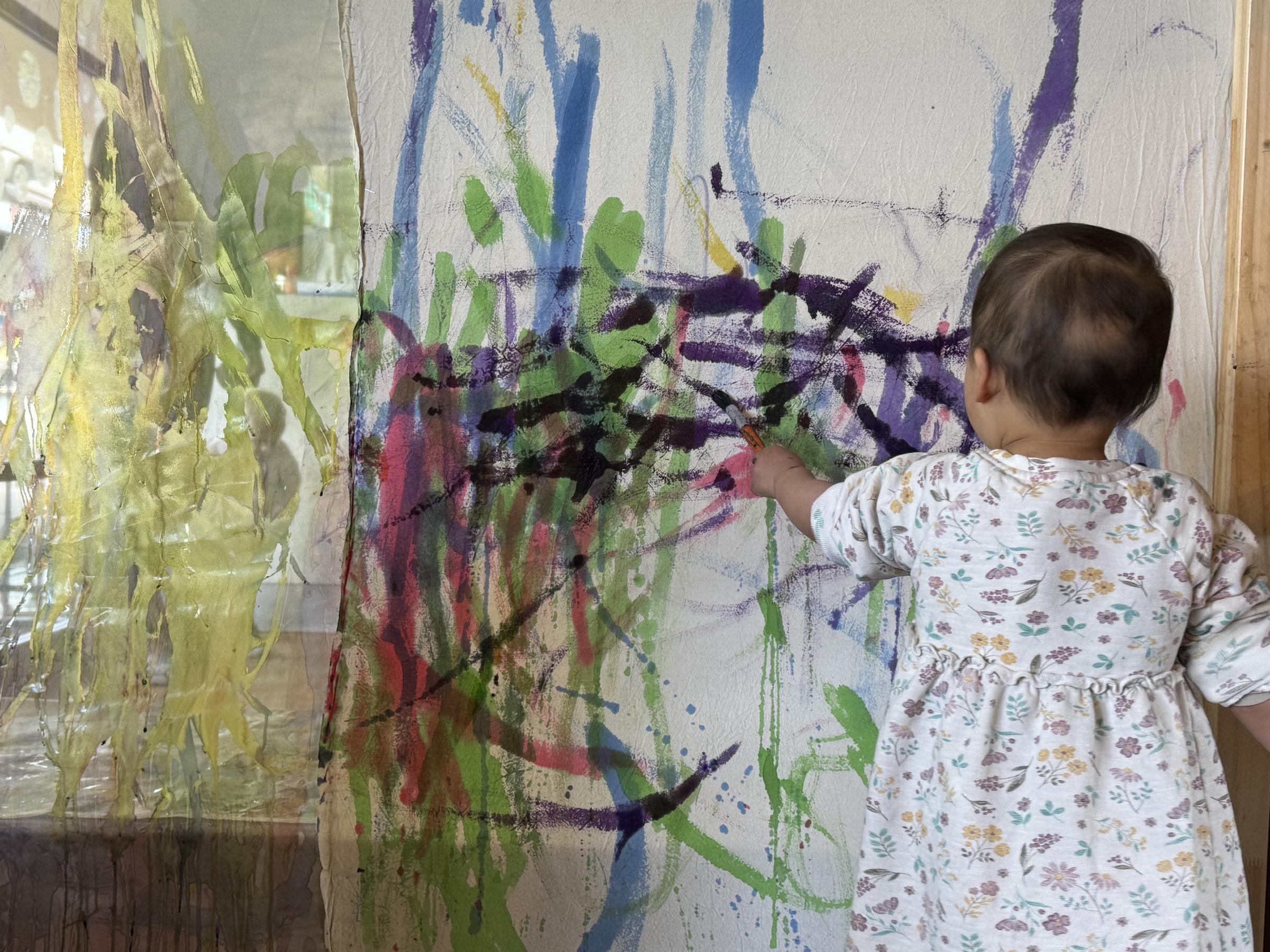Friends' Early Learning Philosophy

Our Philosophy
Embracing the School’s Purpose & Concerns, the Friends’ Early Learning philosophy supports children to develop their ability to think clearly, embrace a global perspective, act with integrity, be kind and helpful to others, understand the value of honesty and become people who care about the world around them and seek to make a difference.
We believe…
Children come to Friends’ Early Learning already alive with curiosity and the wonder of learning. They are competent, creative, rich in potential, critical thinkers and capable problem solvers.
Children’s development thrives in an environment of respectful relationships; each child is recognised as unique, knowledgeable and connected to the community in meaningful ways.
Play is the foundation of all learning; through playful inquiry children build understanding with others, discover new concepts and work through complex ideas.
Language development forms the fundamental building blocks of learning and is fostered through a myriad of engaging experiences.
Mathematics is an essential strategy for thinking about, understanding and describing the world.
Positive relationships, a sense of belonging, social and self-management skills are nurtured by inclusive learning communities.
Wellbeing thrives when children experience positive emotions, engage in a wide range of experiences, develop meaningful relationships with others and are encouraged to take action on their learning.
The development of children’s physical wellbeing is essential and is supported through opportunities for robust active play and awareness of healthy lifestyles.
Stimulating, flexible and resource-rich learning environments activate learning.
Educators are researchers, continually developing their understanding of children, childhood and learning processes.
Listening is a fundamental strategy for understanding children’s learning and development; educators observe, document and reflect on children’s engagement with the program and their approaches to learning in order to plan ways forward.
Collaboration between educators, children and families anchors our practice in open and trusting relationships.
Our Approach to Early Childhood Education and Care
We know that children learn and develop over time as part of a connected system of relationships. We are passionate about the role of play and understand that children’s learning unfolds in infinite and unrestricted directions when they are purposefully connected to the people, materials and environments that surround them. To us, play is the engine of learning; it is a powerful force for children’s exploration, creativity, curiosity, resilience, self-expression and social awareness.
Our educators understand that play grows children’s intellectual capacities and is a child’s primary tool for making meaning and building connections. The process of play is vital for all children’s learning, it fosters social relationships, develops skills and dispositions, builds knowledge and strengthens important brain development. The role of the educator is vital; to support children’s learning and participation in the program, our educational teams engage in observation, documentation and reflection, ensuring children’s curiosity, ideas and interests inform our program.
The daily rhythm of the program at Friends’ Early Learning is designed to support children with sustained periods of time for hands-on experiences through playful inquiry and smooth transitions between different experiences throughout the day. There are times where play is freely chosen and follows children’s ideas, and there are also moments during our day where the educators lead the learning group with discussions and community gathering experiences focused on games, stories and shared explorations in large and small groups. Children have ample opportunity and support across their day to build awareness and experience with literacy and numeracy concepts; these learning engagements are woven throughout the program in meaningful and authentic ways. Here children immerse themselves in a community and context where playful creativity, curiosity and the wonder of learning flourish everyday.
Strengthened by strong social bonds and caring relationships; children at Friends’ Early Learning explore and represent what they know through creativity, interactions and symbolic expression. Our approach embraces children’s identity and supports wellbeing through community, participation and agency. These important elements are central to all that we do, guiding our work alongside children and families.
We know that the environment is considered to be a powerful activator of learning for children. Our learning environments are carefully designed and created to stimulate children’s curiosity and engagement. We make full use of the Early Learning context as well as many areas of the Morris Primary School Campus such as the large green playing fields, the Library and the School vegetable garden. Our Early Learning garden bridges connections between the indoors and outdoors, children are encouraged to access these areas in ‘free flow’ at different times during the day. Physical activity and gross motor play is encouraged as well as quieter moments of relaxation and reflection. Sand and water play provide vital connection to the material environment and our sustainability garden is a popular space with our children as they enjoy opportunities to plant, grow and eat their own fruits and vegetables throughout the year.
Unique in our program, approach and vision at Friends’ Early Learning we weave together the Early Years Learning Framework for Australia, the Reggio Emilia Approach and the International Baccalaurate’s Primary Years Programme for early learners. Founded on the vision that all children are born as competent and capable learners, ready to participate and engage with their world, our program supports learners to discover their place and purpose as part of a supportive and connected learning community.
Quaker Values - A strong foundation for young children
Friends’ Early Learning is guided by the School’s Purpose and Concerns and strives to create authentic contexts for children’s knowledge, skills and understanding to grow alongside others. We embrace Quaker values from the very first days of children’s participation as we build challenging, engaging, significant and relevant programs that cater for all children’s learning journeys.
Embracing simplicity at Friends’ Early Learning gives definition and connection to our community of learners through a core focus on the intrinsic worth of every person, the careful selection and use of purposeful resources and thorough attention to acts of compassion and generosity towards others.
Living peacefully is a thread that connects daily experiences and interactions. Developing peaceful relationships, effective self-regulation and communication skills supports children to understand themselves, others and the world around them in deeper and more harmonious ways.
Acting with Integrity is an enduring focus for everyone in our Centre; it shapes our interactions, gives definition to our rights and responsibilities and makes visible our intentions and principles through everyday action.
The Learning Community at Friends’ Early Learning is central to everything we do. Built on positive and trusting relationships we strive to encourage and support children and families’ well-being, self-efficacy and agency through inclusion, intention and collaboration.
Equality is a value that guides the practices, systems and approaches we bring to every aspect of care and education. Listening is the heart of our practice, ensuring that everyone’s voice is able to be heard and that divergent perspectives continue to guide our collective understandings, decisions and directions in learning.
The learning environment is thoughtfully designed and resourced with earthcare in mind. Our programs encourage children to encounter the earth, natural materials and environments in sincere and respectful ways, building awareness and shared dispositions of responsibility.
